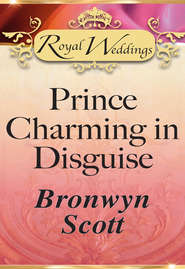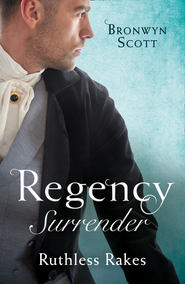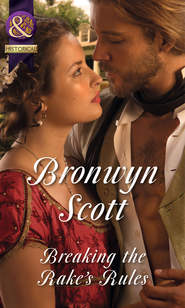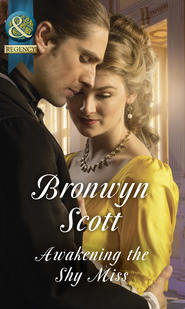По всем вопросам обращайтесь на: info@litportal.ru
(©) 2003-2024.
✖
A Lady Dares
Настройки чтения
Размер шрифта
Высота строк
Поля
For Amber and Scott in commemoration of our great day sailing Commencement Bay. And for the Lindsleys who took me on my first and only sailboat ride.
Chapter One
Blackwell Docks, Sutton Shipyard, London—mid-March 1839
She was screwed! Absolutely royally screwed in the literal sense of the word; the word in question being ‘royally’, of course. Elise Sutton crumpled the letter in her hand and stared blindly at the office wall. Like the other investors, the royal family had finally withdrawn their patronage. And like the other investors, they’d politely waited a ‘decent’ interval to tell her. They were very sorry to hear of her father’s death, but the result was the same. The Sutton Yacht Company was on the brink of bankruptcy, brought to its knees by the sudden and tragic death of its founder, Sir Richard Sutton, six months earlier.
In truth, the idea the company had survived its owner by six months was something of an illusion. It had likely died with her father, only no one had bothered to tell her that. Apparently, courtesy demanded she be allowed to rise at dawn every morning and spend the next sixteen hours a day poring over account books, cataloguing inventory and lobbying investors who had no intentions of staying. She’d worn herself out all for naught and what passed for courtesy let her do it.
Well, courtesy be damned! It wasn’t a very ladylike thought, but according to the ton, she hadn’t been a lady for quite some time. By their exalted standards, ladies didn’t work side by side with their fathers in the family business. Ladies didn’t design yachts, didn’t spend their days adding up columns of numbers and most certainly didn’t set aside mourning half a year early to try to save sinking businesses. ladies meekly accepted the inevitable with hands folded in their laps and backs held rigid.
If that’s what ladies did, she most definitely wasn’t one. She’d spent the last seven years working with her father. The yacht company was as much hers as it had been his. It was part of her and she would not let it go, not without a fight.
At the moment she had admittedly few tools to fight with. The investors had gone, unconvinced the company could produce a worthy product without her father at the helm. The craftsmen and master builder had gone next. The presence of females had long been anathema in the nautical world and no reassurance on her part could induce them to stay. Even her mother was gone. Playing the devastated widow to the hilt, Olivia Sutton had retreated to the country after the funeral and simply disappeared.
Elise had told enquiring souls that her mother was taking her father’s death very poorly. Secretly, Elise thought her mother was managing quite well, too well for her personal tastes. In the months since the funeral, her mother’s letters from the country had become increasingly upbeat. There were quiet card parties and dinners to attend and everyone was so kind, now there was no longer an often absent husband to consider.
Her mother had loved Richard Sutton’s title; Sir Richard Sutton had been knighted two years prior for services to the Royal Thames Yacht Club, but Olivia Sutton hadn’t loved the work that had driven and absorbed him, taking him away from her. The marriage had been a convenient arrangement for years. Olivia had been more than happy to leave her daughter and son to manage the business of coping with solicitors, creditors and the other sundry visitors who hovered over a death like vultures.
The pencil in Elise’s hand snapped, the fifth one today. The sound drew her brother’s attention from the window overlooking the shipyard. ‘Is it as bad as all that?’
Elise pushed the pieces into the little pile on the corner of her desk with the remains of their fellow brethren. ‘It’s worse.’ She rose and joined William at the window. The normally bustling shipyard below them was silent and empty, a sight she was still having a hard time adjusting to. ‘I’ve sold anything of value associated with the business.’
There hadn’t been that much to sell, but that was only partially true. The shipyard itself was a valuable piece of property for its location on the Thames. She wasn’t sure she could face the prospect of giving up the business entirely. This had been her life. What would she do every day if she didn’t design yachts? Where would she go if she didn’t come here? Giving up the yard would be akin to giving up a piece of her soul. In society’s eyes she’d already done that once when she’d chosen to follow her father and not the pathway trod by other gently reared girls with means.
William sighed, pushing a hand through his blond hair, the gesture so much like their father it made her heart ache. At nineteen, William was a taller, lankier version of him, a living memory of the man they’d lost. ‘How much are we short?’
‘Twelve thousand pounds.’ Just saying the words hurt. No one had that kind of money except noblemen. Elise thought of the crumpled letter. She’d been counting on that. Royal patronage would have sustained them.
William whistled. ‘That’s not exactly pocket change.’
‘You could always marry an heiress.’ Elise elbowed him and tried for levity. William didn’t love the business as she did, but he’d loved Father and he’d been her supporter these past months, taking time away from his beloved studies to visit.
‘I could leave my studies.’ William said seriously. He was starting his third term at Oxford and thriving in the academic atmosphere. They’d been over this before. She wouldn’t hear of it.
‘No, Father wanted his son educated,’ Elise argued firmly. ‘Besides, it wouldn’t be enough.’ She didn’t want to be cruel, she appreciated her brother’s offer, but the money would hardly make a difference. Since it didn’t, it seemed unfair for William to make a useless sacrifice even if it was a noble offer.
‘What about the investors—perhaps they would advance funds?’ William suggested. The last time he’d been home, there’d still been a few remaining who had not yet discreetly weaned themselves from the company, still hoping there might be a way yet to continue with the latest project.
Elise shook her head. ‘They’ve all pulled out. No one wants to invest in a company that can’t produce a product.’ They’d more than pulled out. It was largely the investors’ faults she was in such a pickle. Her father had not been debt ridden, but neither had he been wallowing in assets. The investors had withdrawn their support and asked for their money returned, unconvinced the latest project they’d financed would see completion.
Said project lay below them in the quiet yard—the half-completed shell of her father’s latest design for a racing yacht, planned with new innovations in mind, lay dormant. For the last several weeks, the investors were proven right. Supplies purchased with the investors’ money from the outset lined the lonely perimeter, tarp covered and forgotten. ‘A pity the investors didn’t want to be paid in timber and pitch,’ Elise muttered. ‘I’ve got plenty of that.’
William’s eyes settled on her, brown and thoughtful. ‘All the supplies have been purchased?’
‘Yes. Father buys—bought,’ Elise corrected herself, ‘everything up front, it makes production faster and we don’t have to worry about running out at a crucial point.’
William nodded absently, his mind racing behind his eyes. ‘How much would the yacht have brought?’
She smiled wryly. ‘Enough. It would have been plenty.’ It wouldn’t have been just about the yacht. There would have been other orders, too. This yacht was meant to be a prototype. Rich men would have seen it and wanted one for themselves. But it was no use now counting hypothetical pounds.
‘You could finish the boat,’ William suggested.
Elise furrowed her brow and studied her brother carefully. Was that a joke? Had he been listening to anything she’d said? Her temper snapped. ‘I can’t finish the boat, William. I don’t know the first thing about actually using hammer and nails. And in case you haven’t noticed, there are no men down there, no master builder.’
She regretted the sarcasm immediately. William looked hurt. It wasn’t fair to take her agitation out on him. He was suffering, too. He knew what people had said about him behind their hands at the funeral. ‘There’s the son, but he’s too young to take over the company. If only he was a couple years older, then things might have come out all right.’ That was usually followed up by the other unfriendly speculation. ‘Too bad the daughter doesn’t have a husband. A husband would know what to do.’ Husbands solved everything in their little worlds.
‘I’m sorry, William.’ Elise laid a conciliatory hand on his sleeve. ‘It’s a nice theory. Even if I had the men, I couldn’t finish that yacht. The innovations require the knowledge of a master builder. More than that, I’d need the best.’ They would have managed without a master builder if her father had been there to oversee the project, as he so often had been, but no workers were going to take orders from a woman even if she had been instrumental in the boat’s design.
She needed a master builder more than anything else to finish that boat. Beyond her father, she didn’t have a clue who the best was when it came to ship design. Her own talent notwithstanding, she was female and thus excluded from that circle. It had not bothered her unduly in the past. She’d had her father and he’d given her every opportunity she’d desired to advance her skill even if it was often anonymously. She’d never thought further than that. Why should she have? Her father had been in his late forties, in excellent health and at the top of his game. She’d not appreciated by how slim a thread the privilege to indulge her passion had hung until it had been destroyed in one precarious accident.
‘What if I could get you the best?’ William persisted in earnest.
Finish the yacht? He was absolutely serious. It was crazy. The idea started to take hold along with the most dangerous of games, what if? If she had a master builder, workmen would come. If those men came, she could pay them with the proceeds from the sale of the yacht. It could be done. There was less than a month’s worth of work to finish. It was March now, the yacht would be ready by the time society came to town for the Season. Elise’s mind was whirring. Most of all, if they finished the boat the investors would come back. If that happened, the possibilities were as endless as her imagination.
‘I’d say we were back in business,’ Elise said slowly, reining her thoughts back to the present. Finishing the boat had suddenly become the gateway to the future, a future where the company was saved, where she was saved. But there was still this crucial step to accomplish. Everything hinged on the master builder. ‘How soon can we meet?’
William flipped open his pocket watch and studied the face. ‘I’d say right about now, but you’d better bring Father’s pistol from the safe.’
‘His pistol? Whatever for?’ Warning bells went off in her head. What sort of master builder had to be met with a gun? The shipyard was relatively protected. The docks were surrounded by high walls with guards posted to discourage intruders. Inside the walls, a person was fairly secure. Outside those fortressed walls was a different story for the unwary, but not for her. The docks were her territory. She’d walked them with her father, much to her mother’s complete and regular dismay.
If her brother wanted to be protective, she’d let him. Elise checked the gun to see that it was primed. ‘Again, why do I need to bring the gun? I’ve never needed one before.’
William merely grinned at her objection. ‘Well, this time, you might.’
Elise took the pistol more to humour him than out of any genuine belief that she’d actually need it.
She was, however, seriously rethinking that position half an hour later when their carriage pulled up in front of a tavern on Cold Harbour Lane ominously named The Gun. Like most streets in London’s East End, this one was crowded and busy, full of the dock and industrial workers that generated so much of the city’s wealth through the strength of their backs.
The crush and smell of the crowd did not daunt Elise, but what happened next nearly did. They’d barely stepped down from the carriage when the door of The Gun flew open in a violent motion. A man crashed into the street, his careening form barrelling straight into her. She might have fallen entirely if the carriage hadn’t been at her back, a rather hard bulwark against the assault. It stopped her from falling, but certainly didn’t cushion the blow. As it was, the force of the man’s exit bore her against the carriage, his arms braced on either side of her to stop his own flight, his body pressed hard and indecently to hers, his blue eyes taking a moment to register he was quite obviously staring at her bosom as they both struggled to find their equilibrium. He found his first and let out a whoop that nearly shattered her eardrums for its closeness. ‘What a day! You’re the prettiest pillow I’ve yet to lay my head on.’
‘You’ll be laying nothing of the sort,’ Elise replied coolly, bringing the pistol up and holding his eyes with an unflinching stare. It was a deep-blue gaze, dark midnight like the sea itself, and the press of his body was not entirely unpleasant. There was muscle and strength beneath his rough clothes and the hint of morning soap mingled with the faint whiff of whisky. All very manly scents when presented in the right proportions. Still, she could not stand there and ponder his masculine aesthetics. Propriety demanded his removal from her person. Immediately.
‘Please step away.’ Where was her brother? Hadn’t he been right beside her?
‘That’s not who you want to shoot.’ Was that laughter she heard in her brother’s voice? If he wanted to be protective, he was a bit late.
‘Maybe I should shoot you instead, William,’ Elise said through gritted teeth, tossing him a sideways glance over the man’s notably broad shoulder. She shoved at the blue-eyed stranger, who’d made no move to distance himself. Her hands met with the steely resistance of a muscled chest. ‘Are you going to get off?’
‘Probably at some point. Most women don’t like a man who gets off too early, though, if you know what I mean.’ He finally moved away, laughter crinkling his eyes as he studied her. She knew exactly what he meant and she would not give him the satisfaction of blushing over his crass remark. Years on the docks had immured her from taking offence at such colourful references. To be sure, such remarks weren’t allowed in her father’s shipyard when she was in earshot. Her father had been protective in that way, but the language and innuendo of the docks were hard to escape altogether.
‘Elise—’ William stepped in ‘—allow me to make the introductions. This is Dorian Rowland,’ he said with a flourish as if the name alone explained it all.
She eyed the man speculatively, taking in the tanned skin, the long tawny hair loosely held back by a strip of leather and streaked from the sun of faraway climes—England never had enough sun to achieve such a look. She was momentarily envious of such artless beauty until the import of her brother’s words sunk in. This was the man who was supposed to save her business?
The door to the tavern opened again, ejecting three tough-looking men with clubs. Her stranger shot a look over his shoulder. ‘Could we finish introductions in your carriage?’
The three men were momentarily dazzled by the sunlight as they searched the area for something. Someone, she realised too late. Their eyes lit on her stranger. ‘There he is! You’re not getting away from us! Halsey wants his money.’











